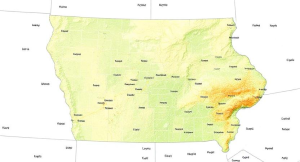Fertilizer registration in Iowa is an essential regulatory process to ensure the safety, quality, and accurate labeling of fertilizers distributed within the state.
Managed by the Iowa Department of Agriculture and Land Stewardship (IDALS), this process protects farmers, the environment, and end consumers.
This comprehensive guide explores the registration process, key requirements, and best practices for fertilizer compliance in Iowa.
Importance of Fertilizer Registration in Iowa
The state of Iowa has a rich agricultural heritage, with fertilizers playing a critical role in crop productivity. To maintain soil health and ensure safety, the state mandates that all fertilizers meet specific standards before distribution. Registration ensures that nutrient content, application instructions, and environmental considerations are accurate and compliant with state laws. This protects consumers from substandard products while promoting sustainable farming practices.
Steps for Fertilizer Registration in Iowa
The fertilizer registration process in Iowa involves the following steps:
1. Prepare Necessary Documentation
Before beginning the registration process, manufacturers or distributors must compile essential information, including:
- Guaranteed Analysis: Nutrient composition, including nitrogen, phosphorus, and potassium percentages.
- Safety Data Sheets (SDS): Information on safe handling, storage, and potential hazards.
- Label Information: Accurate details about application rates, usage, and precautions.
2. Complete the Registration Application
Applications for fertilizer registration can be obtained through IDALS. The application form requires details about the product name, formulation, intended use, and guaranteed analysis. Ensure all information provided is complete and accurate.
3. Submit Registration Fees
Fees are determined by the number of products being registered. IDALS outlines the fee structure on its website, and payments can be made online or via check. Keep payment receipts for reference.
4. Submit the Application
Submit the completed application, along with all supporting documents and payment, to IDALS. Electronic submissions are preferred, but hard copies are also accepted if required. Double-check the application to prevent processing delays.
5. Await Review and Approval
IDALS reviews applications to ensure compliance with state fertilizer laws. They assess the product’s labeling, nutrient claims, and environmental safety. Approval is granted only after the product meets all regulatory standards.
6. Renew Annually
Fertilizer registrations in Iowa are valid for one year and must be renewed annually. Renewal involves updating product information, paying fees, and resubmitting the application. Timely renewal prevents disruptions in distribution.
Regulatory Requirements for Fertilizers in Iowa
Fertilizers sold in Iowa must meet stringent regulatory standards, including:
- Labeling Accuracy: Product labels must clearly display the nutrient composition, application instructions, and safety information.
- Environmental Considerations: Fertilizers must be formulated to minimize risks to soil and water quality.
- Compliance with Nutrient Management Plans: Products must align with Iowa’s nutrient management guidelines to support sustainable agriculture.
Common Challenges in Fertilizer Registration
Manufacturers and distributors may encounter challenges during the registration process, such as:
- Incomplete Applications: Missing or incorrect information can delay approval.
- Cost Management: Registration fees and related expenses may pose a financial challenge for small-scale manufacturers.
- Regulatory Updates: Staying informed about changes in Iowa fertilizer laws is crucial to maintaining compliance.
FAQs About Iowa Fertilizer Registration
1. Who needs to register fertilizers in Iowa?
All manufacturers and distributors selling fertilizers in Iowa must register their products with IDALS. This applies to synthetic and organic fertilizers alike.
2. What information is required for registration?
The application requires details about the product’s guaranteed analysis, labeling, and safety data. Accurate and complete submissions are crucial for approval.
3. How much are the registration fees?
Fees vary depending on the type and number of products being registered. Visit the IDALS website for the latest fee structure and payment options.
4. How long does the registration process take?
Processing times depend on the volume of applications and the completeness of the submission. On average, it takes a few weeks for IDALS to review and approve applications.
5. Are there penalties for non-compliance?
Yes, selling unregistered fertilizers in Iowa is a violation of state law and can result in fines, product recalls, or legal action. Compliance is essential to avoid penalties.
6. Do organic fertilizers require registration?
Yes, all fertilizers, including organic products, must be registered to ensure compliance with Iowa’s regulatory standards and quality assurance requirements.
7. Can registrations be transferred between companies?
No, registrations are specific to the registrant and cannot be transferred. If ownership changes, the new entity must register the fertilizer separately.
Conclusion
Fertilizer registration in Iowa plays a vital role in ensuring the safety and efficacy of products used in the state’s agricultural sector. By adhering to the guidelines set by IDALS, manufacturers and distributors contribute to a sustainable and productive farming environment.
Timely registration, accurate documentation, and compliance with labeling standards are key to avoiding penalties and maintaining consumer trust. For further assistance, consult the IDALS website or contact their support team directly.
Recent Posts
Rabbits can be a major nuisance in gardens, chewing on tender shoots and ornamental plants. Selecting the best plants rabbits will not eat is a natural way to protect your garden without resorting to...
The best Swiss Cheese Plant care instructions help plant lovers grow healthy Monstera adansonii with large, perforated leaves and strong vines. This tropical houseplant has become extremely popular...